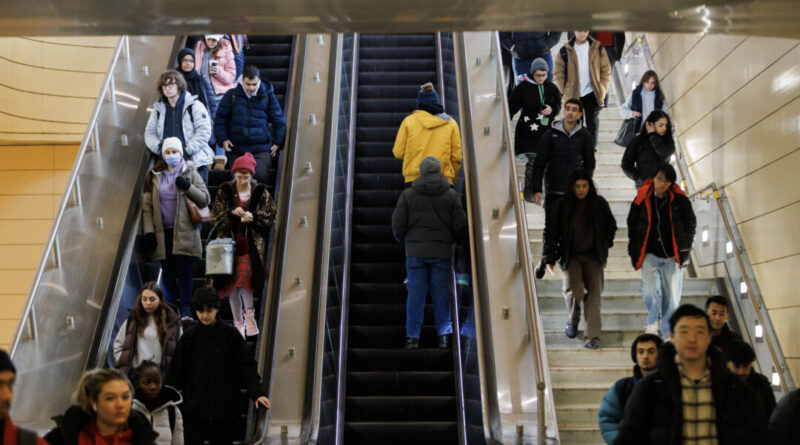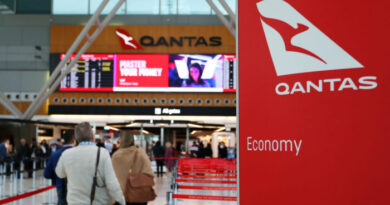Toronto Transit Agency to Discontinue Free Public Wi-fi Service in Subway Stations by Year’s End.
The Toronto Transit Commission is discontinuing complimentary public Wi-Fi at its subway stations by the end of the year due to decreased rider usage, as well as concerns regarding reliability, security, and cost.
This decision, originally reported by the Toronto Star, coincides with Rogers Communications Inc.’s ongoing installation of 5G cellular service across the subway network, allowing passengers to make calls, send texts, or browse the internet using their own data.
TTC spokesperson Stuart Green noted a 65 percent decline in TConnect Wi-Fi system usage since the introduction of 5G connectivity for all carriers. He mentioned worries about the technology and infrastructure’s age concerning performance and security.
“When comparing subway trips to overall logins, we observed that TConnect is only utilized in two percent of trips,” Green stated in an email. “We’re collaborating with Rogers to complete the 5G network deployment and we’ll explore ways to enhance connectivity on the TTC to enhance the customer experience.”
Regarding proposals to update or replace the Wi-Fi equipment, Rogers spokeswoman Sarah Schmidt disclosed that the company had made such suggestions to the TTC last year after acquiring the Canadian operations of BAI Communications. The latter was initially tasked with establishing a wireless network in the subway system.
However, the TTC “opted not to extend the agreement to upgrade, modernize, or rebuild the Wi-Fi infrastructure beyond its useful life,” she stated. “This decision was made by the TTC. The Wi-Fi infrastructure at subway stations has reached its end of life, and usage has significantly declined since the implementation of 5G in the subway system.”
It was estimated that it would cost $17 million to improve the infrastructure to address performance and security concerns, which the TTC deemed not a prudent investment. “We believe our customers would prefer to see this money invested in our core business of providing safe and reliable transit service,” Green remarked, indicating that the TTC will inform riders of the change in the coming months.
With Rogers’ cellular network available to all passengers in every subway station since late last year, as well as in tunnels primarily downtown between St. George, Bloor-Yonge, and Union stations, tunnel service is also accessible between Sheppard West and Vaughan Metropolitan Centre stations.
In addition, the company announced in May that it had initiated the next phase of the build in the remaining 36 kilometers of unconnected TTC subway tunnels. Schmidt explained that Rogers anticipates providing an update on the progress of this work later in the fall.
Despite the dwindling TConnect usage as 5G expansion progresses, Shelagh Pizey-Allen, executive director of the TTCriders advocacy group, highlighted the considerable value the public Wi-Fi network still holds for low-income transit riders. She expressed disappointment in the decision to phase out the service.
“Individuals who can’t afford cellphone plans rely on public Wi-Fi to communicate during lengthy TTC journeys,” Pizey-Allen noted. “Given that most TTC users are lower income, shift workers, and women, it’s essential to ensure that this public service remains available to those who need it most.”





